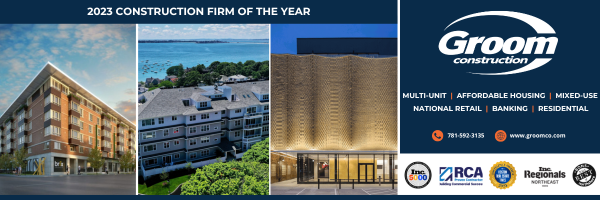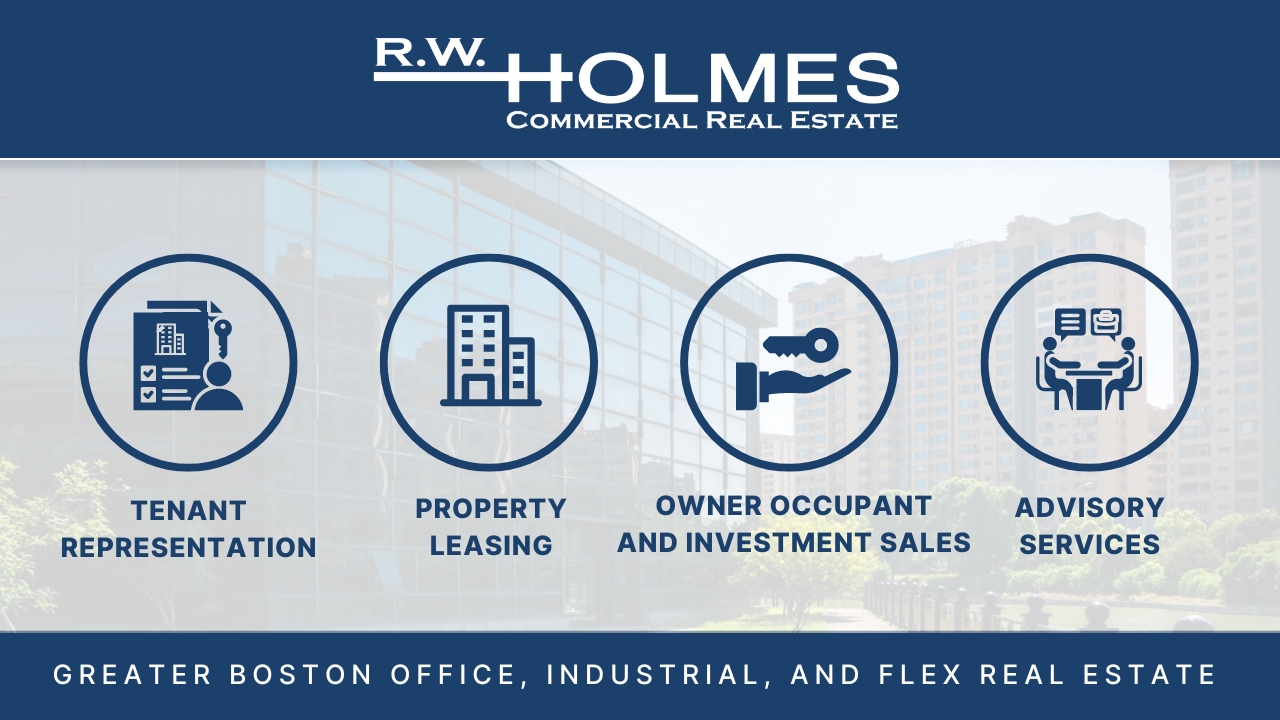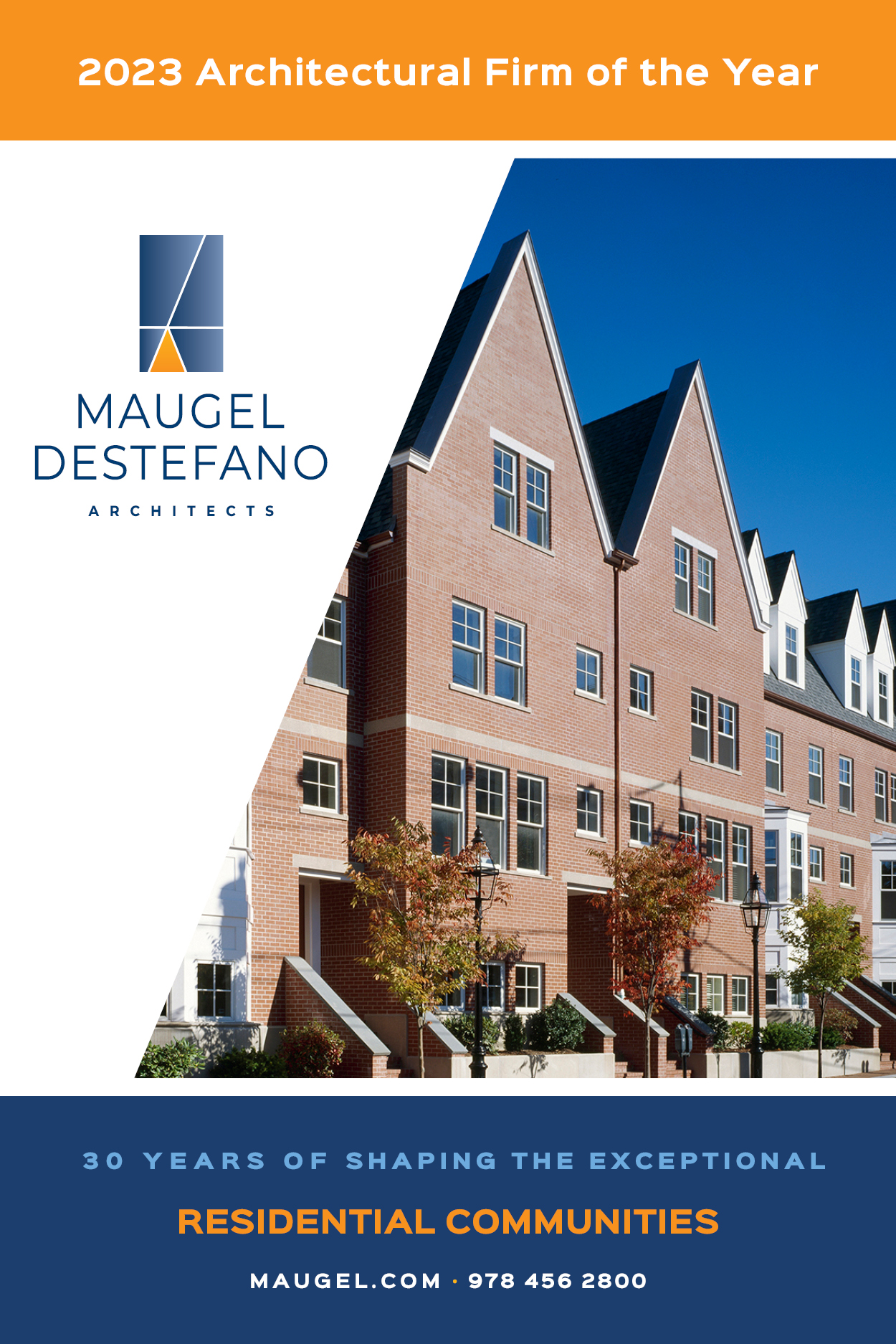BOSTON–The Boston Planning & Development Agency (BPDA) Board of Directors this month approved four new development projects representing 2.5 million square feet (SF).
The new projects will create 145 residential units, 56 of which will be designated income-restricted, and will support approximately 2,267 construction jobs and 4,614 permanent jobs. These projects will make Boston a more resilient, affordable, and equitable city.
BPDA designates HYM Investment Group and My City at Peace to redevelop Parcel P3 in Roxbury
The BPDA Board voted to tentatively designate HYM Investment Group, LLC and My City at Peace (HYM/MyCAP) to redevelop Parcel P3 in Roxbury. HYM and MyCAP are proposing to transform this long vacant parcel, which is currently being used as overflow parking for adjacent sites, into much needed affordable housing for the community, green spaces, life science buildings, a life science workforce training center, and a new museum and policy center. Due to its large size, proximity to public transit, major roads, and educational facilities, this site has the potential to contribute to economic development in the Nubian Square area while advancing the community’s vision for affordable housing, arts & culture, and equity. Currently, the proposal aims to redevelop this parcel into five mixed-use buildings and open space. These buildings would be a mix of lab, residential, retail, commercial, and assembly space. Consisting of approximately 7.7 acres, this is the largest undeveloped parcel in the BPDA’s real estate portfolio.
BPDA approves termination of Widett Circle Chapter 121A Project, enabling future transportation improvements
The BPDA Board approved the termination of the New Boston Food Market Chapter 121A Project with Widett REIT, located in Widett Circle. Widett REIT submitted an application requesting termination of the Project for economic and legal circumstances that have eliminated any future viability of this Project. This area is currently being considered for critical transportation planning and initiatives, and this termination will allow for the Massachusetts Bay Transportation Authority to acquire the site for this essential work.
BPDA moves forward with Allston Brighton Needs Assessment
The BPDA Board authorized the release of a Request for Proposals to engage a consultant to assist in preparing the Allston Brighton Needs Assessment. The Needs Assessment will act as an existing conditions report and serve as the first step in creating a larger neighborhood-wide planning initiative. The demand for the Needs Assessment arose out of a request by the Harvard-Allston Task Force, and will be made financially feasible by the Harvard ERC Phase A, which was approved by the Board last July. The Needs Assessment will also supply the community with information upon which to base development mitigation recommendations for future development projects in the area.
BPDA releases Copley Connect Long-Term Strategy RFP for design services
The BPDA Board authorized the release of a Request for Proposals for consultant design services in relation to the Copley Connect pilot program that took place in June of 2022. During this pilot, which was done in partnership with the Boston Transportation Department (BTD), the section of Dartmouth Street between the Boston Public Library and Copley Square Park was opened to pedestrians and closed to vehicular traffic, creating one unified space in Copley Square.This new public space maintained the existing bike lane and featured café seating, food trucks, performances, block parties, outdoor yoga, dance lessons, and programming for library activities over the course of ten days. The majority of the feedback following the pilot was overwhelmingly positive, with many visitors saying they would visit the area more frequently if it was made a permanent car-free space. An analysis of motor vehicle routes in the area found that travel times during the pilot were generally comparable to pre-pilot travel times.These results have encouraged the BPDA and BTD to advance the Copley Connect Long-Term Strategy, which will identify a preferred concept for permanent improvements to Dartmouth Street and identify ancillary changes to nearby streets, as needed.
BPDA to disburse $200,000 from the Harvard Allston Partnership Fund to local nonprofits
The BPDA Board approved the disbursement of $200,000 to 20 local nonprofit organizations in the Allston and Brighton neighborhoods. This funding comes from the Harvard Allston Partnership Fund, which is maintained by the BPDA and funded by Harvard University. The program, established by Harvard University and the City of Boston, in collaboration with the Allston community, was created to support nonprofit organizations providing neighborhood improvement projects, cultural enrichment, and educational programming for residents living in North Allston-Brighton. The awards support everything from educational programs and enrichment activities, to engaging activities for families and local youth. Normally, $100,000 is distributed each grant cycle, but this year an additional $100,000 was funded by mitigation as a result of the December 2022 Board Approval of the fifth amendment to the Harvard Institutional Master Plan for Harvard’s Allston Campus.
The 2022 recipients are listed below:
- Allston Brighton Youth Hockey Association $20,000
- Brazilian’s Women’s Group $20,000
- Family Nurturing Center $20,000
- West End House $20,000
- The Fishing Academy $19,398
- Gardner Pilot Academy $16,602
- Boston String Academy $15,000
- Lovin’ Spoonfuls $10,000
- EXIT Galleries $7,500
- Allston Brighton Food Pantry $5,000
- Big Sister Association of Greater Boston $5,000
- Friends of the Honan Allston Library $5,000
- Oak Square YMCA at Charlesview $5,000
- Open Door Soup Kitchen $5,000
- Project Citizenship $5,000
- West End House Boys Summer Camp $5,000
- West End House Girls Camp $5,000
- Winship Parent Council $5,000
- Charles River Watershed Association $4,000
- Allston Brighton CDC $2,500
Development Projects
Phase One of former Edison Plant at 776 Summer Street moves forward
Live: $8.5 million in linkage for affordable housing
Work: Approximately 938 construction jobs, approximately 2,360 permanent jobs, 10 percent subsidized retail available to M/WBE businesses, $1.5 million in linkage for job training, four annual internships, annual job fair
Connect: 5.7 acres in open space, Edison Turbine Hall preserved and used as civic space, new raised cycle track
Sustain: 90 percent reduction in natural gas in new buildings, new seawall and elevated site, meets Coastal Flood Resiliency Overlay design standards
Located between the marine industrial and residential areas of South Boston, this project is the first of the Master Plan for Planned Development Area No. 128, which was originally approved in January of 2021. The project will build a new transit-oriented, mixed-use development, including the rehabilitation of the Edison Turbine Halls and the construction of two new buildings, each of which are expected to include office, research and development, and retail uses. This project is consistent with the Master Plan and community’s goal to honor the industrial history of this site by preserving and adaptively reusing the early 20th century Turbine Halls. Civic and retail spaces inside the Turbine Halls, and within the fully pedestrianized Turbine Alley, will activate the historic buildings and provide much-needed community gathering space.
Not only will this development create hundreds of jobs in life sciences and construction, the project has also committed to on-site assistance, job fairs, and informational presentations to community groups to assist South Boston residents in learning about work opportunities created by this project, including for future phases. These opportunities include construction employment, permanent employment, small business contracting, and retail leasing. The project will also give first preference to South Boston small businesses and other City-or State-certified disadvantaged small businesses to lease up to 10 percent of the retail space on site. In addition, this project will also fund a $1 million scholarship endowment to provide annual scholarships to South Boston high school and college students.
This project will also significantly improve the public realm and create a vibrant pedestrian environment by expanding the public street network, biking infrastructure, and improving sidewalks to increase connectivity. Phase One will also deliver 65 percent of the public open space included in the Master Plan. In support of making this a transit oriented development, bike parking will also be included on site, as well as three Bluebike stations, and an improved bus stop at Summer and East First Streets with a new bus shelter. The project will also contribute $188,893 to the Boston Transportation Department in support of the City’s bikeshare program. In addition, the project will also contribute $10,080,000 over several years to the MBTA to improve the reliability, safety and convenience of transit services serving the project area.
Former WBZ station to become the site of housing and life sciences research at 1170 Soldiers Field Road
Live: 85 residential units
Work: Approximately 2,254 permanent jobs, space for research and development as well as retail space, approximately 1,274 construction jobs
Connect: Space for public programming and events, new pedestrian and bicycle infrastructure, connections to regional destinations
Sustain: LEED Gold, residential space will be all electric
What is now the campus of WBZ-TV in Allston will be converted into four new buildings: three life science buildings and one apartment building containing 85 units. These will be a mix of studios, one, two, and three-bedroom units. The ground floor of each life science building will also have space for cafe or retail space. The BPDA Board approved a new facility for WBZ- TV in December 2020. This is the first project approved under the Western Avenue Corridor Study and Rezoning (WACRZ), which provides zoning, urban design, and mobility frameworks to guide change in an area undergoing increased development demand. The project respects the parameters set forth in WACRZ in programming, dimensional, and density requirements, and is in the Barry’s Corner node proposed for higher-density, mixed use development, including life science uses and housing. This project will generate $9,234,000 in linkage payments to affordable housing creation and workforce training. It will also contribute $200,000 to afterschool programming at West End House with a special focus on STEM education for under-served students, and another $200,000 to support at least two annual summer internships for Allston residents with future tenant companies. In addition, community benefits from this project include a $150,000 contribution to source public art from local neighborhood artists to be included on site, and a $150,000 contribution to the Boston Parks and Recreation Department in support of maintenance at Smith Field. This project will improve the public realm with a $1.25 million contribution to the Department of Conservation and Recreation for a new crossing at Soldiers Field Road, and will also make $650,000 in improvements to the MacDonald Avenue and Speedway Avenue intersection. This project will also provide a Bluebikes station on site, as well as bike parking.
Former Church Building at 207 E Street to be converted into Senior Housing
Live: 35 senior income-restricted units, one unit for property manager
Work: Approximately 31 construction jobs, on site property management and resident services space
Connect: Located in close proximity to bus routes and the MBTA Red line, bicycle parking on site
Sustain: Targeting LEED Silver, meets Coastal Flood Resiliency Overlay design standards
What was formerly the convent for St. Augustine Church will be redeveloped into income-restricted senior housing in South Boston. This project, led by the South Boston Neighborhood Development Corporation will maintain and restore the façade of the existing five-story brick building originally built in 1926, and construct a rear addition to the building. Of the 35 senior units,19 will be made available to those earning no more than 50 percent of the Area Median Income (AMI), and 16 units will be made available to those earning no more than 30 percent of the AMI. The existing trees in the front courtyard will remain on site, and the project will add new landscaping, an entryway, and a seating area. The side of the building will also include covered resident bike storage.
New housing at 26 Coffey Street granted approval
Live: 24 homeownership units, four income-restricted units
Work: Approximately 24 construction jobs
Connect: In close proximity to public transportation, car share vehicles provided on site
Sustain: Meets Coastal Flood Resiliency Overlay design standards
This project in Dorchester will construct a new four-story building containing 24 condominium units, four of which will be considered income-restricted. These units will be a mix of studios, and one and two-bedroom units. Some of the main points of focus for BPDA staff during review of this project were to maximize usable open space on the ground floor for residents, and improve the building’s street presence. The project falls within the Coastal Flood Resilience Overlay District and will address sea-level-rise-design flood elevation through project design. The Coffey Street development will also provide numerous community benefits including two vehicles provided for car share use on site and a $300 credit for residents to use the service, a $7,500 donation to the Boston Parks and Recreation Department, and a $7,500 donation to the Daniel Marr Boys and Girls Club.
Planned Development Area (PDA) Plan Approvals
(individual development projects to be approved separately at a later date)
Simmons University property at 305 Brookline Avenue slated for transformative mixed-use use development
Live: Approximately 388 units, 20 percent of units income-restricted, approximately $17 million in linkage towards affordable housing
Work: Approximately 5,000 permanent jobs, approximately 5,000 construction jobs, diverse retail space with priority to M/WBEs, approximately $3 million in linkage towards job training
Connect: Community space, workforce training hub, $8 million in public realm improvements, $4 million in transportation contributions, nearly three acres of open space
Sustain: LEED Gold, all-electric residential buildings, 90 percent reduction in fossil fuel use at lab buildings, $7 million endowment for Boston Parks and Recreation
Located in the Longwood Medical Area (LMA), this Planned Development Area (PDA) Development Plan will redevelop a portion of land on the Simmons University Campus into a mixed-use development spread over five buildings including residential, community space, retail, laboratory uses, office uses, and commercial uses. Within the residential space will be approximately 388 housing units, 20 percent of which will be income-restricted. This Development Plan is a critical step to enabling the construction of the Simmons Living and Learning Center which, by fulfilling the One Simmons vision, will support the continued growth and viability of Simmons University in this neighborhood, and redevelop the residential campus to provide needed funding for the institution. As part of this Development Plan, the project will provide a minimum of 2.6 acres of privately owned publicly accessible open space and exterior public realm in total on the site. In addition,the Development Plan will provide a mix of active and passive programming throughout the site in partnership with Longwood Medical Area institutions and the City of Boston to activate the publicly accessible interior and exterior spaces. This plan will also reconfigure and improve existing infrastructure to create a safer and more vibrant public realm. This includes new, wider sidewalks, new bike lanes, new bus shelters, and new pedestrian crossings. The Development Plan will also contribute at least $4 million towards implementing area transportation recommendations developed through the Fenway-Kenmore Transportation Action Plan.
With the approval of this PDA Development Plan, the project will contribute $7 million to the Boston Parks and Recreation Department. $1 million of that payment will go to study the shadow impacted areas of the Emerald Necklace, which will guide the development of a policy to prioritize the protection of the Emerald Necklace from development impacts. This study will be completed within approximately one year from the PDA Development Plan approval. The study and resulting policy is intended to inform the impacts of development on open spaces citywide. Another $6 million will be delivered to the Parks and Recreation Department for a maintenance endowment for the impacted area in the Emerald Necklace, following the issuance of a building permit for the first phase of the PDA.
Other community benefits stemming from the approval of this PDA include a dedicated community space on site, part of which could be used to create and outfit workforce development and life science training hub for the LMA and the Fenway in partnership with the City, in addition to thousands of permanent and construction jobs pending approval of future projects. The Development Plan will also bring much needed new retail offerings to the LMA in the form of both temporary and permanent spaces. The plan will prioritize allocating retail space to small, local M/WBEs.
In addition to these projects the Board approved:
- An update to a previously approved project at 28-30 Geneva Street in East Boston for a change in ownership.
- An update to a previously approved project at 7 Channel Center for a change of use from office to lab. An amendment to the PDA was also made for lab level restriction.
- A two year renewal of the 2013 Institutional Master Plan for Harvard University’s campus in Allston.



















